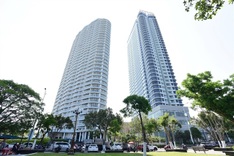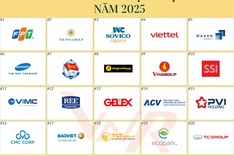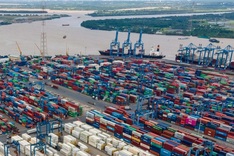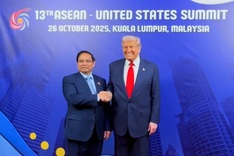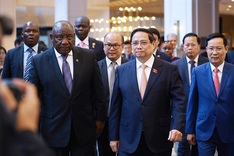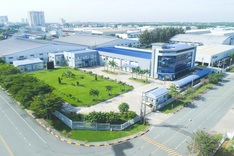>> Improper land pricing triggers corruption
Current investment models cause corruption and other problems because of investors’ excessive privilege, and should be replaced with the Public–Private Partnership (PPP) model.
 |
| Infrastructure projects subject to enormous corruption |
According to the World Bank, the efficiency of public-private investment cooperation mechanism through the forms of Build-Operate-Transfer (BOT), Build-Transfer (BT) and Build-Transfer-Operate (BTO) in Vietnam remains limited when investors are given too many privileges.
Professor Dang Hung Vo, Former Deputy Minister of Natural Resources and Environment, said that, for a BOT or BTO project, an investor would be granted with a license and then allowed to operate the project. Such privileges adversely affect the project’s efficiency and cause other public concerns.
Vu Quynh Le, Director of the Bidding Support Centre under the Ministry of Planning and Investment, said currently around 110 BOT, BT and BTO projects have been implemented or are seeking investment. These include Vinh Tuy and Thanh Tri bridges, Phap Van-Cau Gie Expressway, Linh Dam and Dai Kim-Dinh Cong new urban areas and National Sport Stadium in Hanoi.
In Ho Chi Minh City, they include Ho Chi Minh City-Trung Luong, Ho Chi Minh City-Long Thanh-Dau Giay expressways and Phu My and Rach Mieu bridges.
According to some economists and officials, PPP is essential for the development of Vietnam’s infrastructure, which faces a serious lack of funding.
From now to 2020, Vietnam will need somewhere near USD160 billion for infrastructure development, including transportation networks, power projects and waste treatment plants. Meanwhile, funds from the state budget, government bonds and official development assistance (ODA) only account for half of this figure.
A report from the World Bank indicated that private firms make up only 20% of Vietnam’s total investment in infrastructure.
With the PPP model, the state will make up 30% of the total capital in a project and the rest would be provided by private enterprises. This will help to mitigate risk for public investments.
State agencies will work out a list of projects prioritised for PPP investment and select qualified local and foreign contractors.
Vietnam has already piloted a number of PPP projects, including Dau Giay-Phan Thiet, Ninh Binh-Thanh Hoa, My Thuan-Can Tho, Noi Bai-Ha Long and Ben Luc-Long Thanh expressways.
Dr Nguyen Minh Phong, Head of the Socio-Economic Research Division under the Hanoi Socio-Economic Research Institute, suggested that the Government should issue a law on public investment to boost the implementation of PPP projects.


